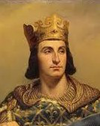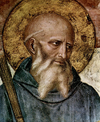Symbols of Caradia
From MicrasWiki
Jump to navigationJump to search
The symbols representing Caradia are, though none are included in official statutes, used as representations of the Caradian state, both at domestic and foreign events.
List of current symbols
| Symbol | File | Description |
|---|---|---|
| National Flag | 
|
The flag of Caradia consists of a dark yellow, featuring as a charge the Eagle of the Sacred House. The flag originated with the founding of the current dynasty, as it was the flag of the house of King-Saint Godrick I. |
| Coat of Arms | 
|
The Coat of Arms of Caradia is a simple design only consisting of the Eagle of the Sacred House, the house symbol of King-Saint Godrick I. The symbol remained in use throughout the current dynasty as the symbol of heraldry for the nation as a whole. |
| National Anthem | Coț Stanțul Auramic |
Caradia's wordless national anthem was a march written in honour of King-Saint Godrick I's coronation, being a lively song with military overtones to underscore the reverence and triumph of the event. |
| Motto | Legate Împreună în Sânge (Bound Together in Blood) |
The Caradian motto is a motto of King-Saint Godrick I, who allegedly repeated this phrase to his soldiers to rally them. |
| National language | Sarnechi | Caradia has four official languages (Sarnechi, Vosanskiya, Scearick, and Sacovian), but Sarnechi, the language of the Cearîm who originally fought for the monarchy, is considered the official language. The monarchy refuses to acknowledge attempts to categorise it as a dialect of already existing languages. |
| People |  King-Saint Godrick I |
King-Saint Godrick I is the most revered and honoured person in the history of Caradia, being seen as the person who liberated the Duchy from the oppressive democracy. His worship is also the subject of religion |
 Saint Rodrick |
Saint Rodrick was the first lieutenant of King-Saint Godrick I, and is the most important saint in the Flemic Church, as he helped proliferate the church in its early days, as well as writing the Book of the Records of Our Ancestor, which is the Flemic holy text. | |
| National drink | Uasacu Caradic Sangat | |
| National dish | Tasaveo |
| |||||||||||||||||||||||||